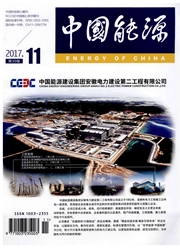

 中文摘要:
中文摘要:
主权财富基金的兴起是20世纪90年代初石油价格暴增导致的商品价格的上升和全球收支失衡的直接结果。主权财富基金从建立之初,就隐含着保证国家发展的稳定性和安全性的动机。基于国家安全的战略目的,中国的主权财富基金在能源领域的投资倾向越来越明显。由于能源具有战略属性,对能源的投资一方面为保证我国的能源安全提供了一种解决的途径,另一方面,也引发了其他国家对于地缘性政治战略的敏感反映。各国对于主权财富对重要能源的投资均有不同程度的限制,这在一定程度上使得能源市场更加复杂,对能源安全产生了不利影响。本文初步探讨了我国主权财富基金在能源领域的投资对我国的能源安全的影响,并给出相关建议。
 英文摘要:
英文摘要:
Sovereign Wealth Funds (SWFs) is an inevitable result from the risk of commodity prices and global payments imbalances which are caused by the surge of oil price in the early1990s. As a consensus, SWFs implied incentive to guarantee the stability and security of national development from its beginning. Out of the national security strategy, China's SWFs more and more obviously tends to invest in the energy fields. Because of the strategic properties of energy resources, SWFs' investment in energy, not only offers an alter native to strengthen China's energy security, but also leads to sensitive reaction on geopolitical strategy from other countries. Thus, many countries take restrictions on SWFs' investment in energy to different extent. This makes energy market more complicated, and even negatively impacts energy security. This paper tries to analyze the influence of SWFs' investment in energy on energy security in China, and some policy implications are proposed.
 同期刊论文项目
同期刊论文项目
 同项目期刊论文
同项目期刊论文
 Risk integration and optimization of oil-importing maritime system based on intelligent knowledge ma
Risk integration and optimization of oil-importing maritime system based on intelligent knowledge ma Energy Geopolitics and Chinese Strategic Decision of the Energy Supply Security: A Multiple-Attribut
Energy Geopolitics and Chinese Strategic Decision of the Energy Supply Security: A Multiple-Attribut 期刊信息
期刊信息
